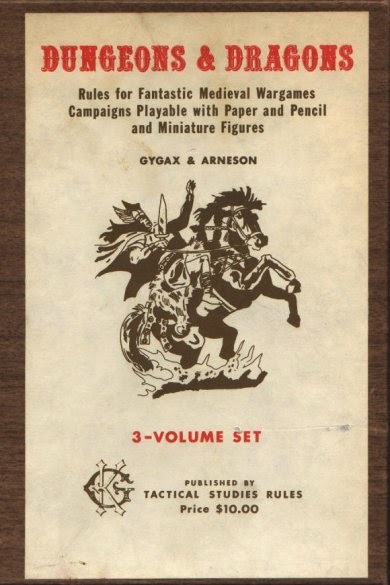 How we model melee in an RPG sets the framework for players to leverage their weapon's strengths and exploit their opponent's weapon's weaknesses. Weapon speed and initiative have been two variable commonly used in games to model this. Another variable that's used is weapon reach. Although less commonly so in my experience.
How we model melee in an RPG sets the framework for players to leverage their weapon's strengths and exploit their opponent's weapon's weaknesses. Weapon speed and initiative have been two variable commonly used in games to model this. Another variable that's used is weapon reach. Although less commonly so in my experience.
One variable that is seldom considered is character speed. We infer and sometimes we're event told that within the abstraction of combat rules characters are constantly moving, turning, evading and looking for a weak spot to attack. It is usually disregarded because characters and monsters move around each other at about the same speed as they turn, take a step forward or take a step backwards and prepare to attack. If this is constant or pretty much so that it can be disregarded then weapon length is a key element in initiative and getting the first hit.
After looking at the video I'm left with the feeling that a character with a dagger has no chance against a sword. Yet many modern sword and armor duels show the participants engaged in a way that looks more like a wrestling match than an exchange of sword swings. There's pummeling, grabbing, pulling, tripping and pinning to the ground. Movements that would benefit from the quick use of a dagger rather than a long sword. Swords are even grabbed by the opponent's gloved hand and they do little or no damage to full plate armor.
If distance grants the advantage to the longer sword and not the shorter dagger and if the dagger, nimble as it may appear when compared to the sword, is really not that much faster; where is the advantage? How can we leverage the different weapons' advantages? What happens when we change the sword for the polearm? Sure, it's longer and deadlier, but get close to the enemy and it's useless.
This brings me to initiative. To attack the polearm with a knife our hero must first wait for the initial assault (yielding initiative to the attacker), not get killed by said attack and then get close enough to attack and (hopefully) neutralize the polearm. Initiative in this case is not actually about rolling first, but rather rolling last. Wait, what if initiative isn't about going first or last (although this is a common understanding in RPGs and a common usage of the word). What if initiative is about doing things independently of outside influence or control (another definition for the word). How can we leverage the weapon's attributes in a way the character has the initiative without attacking first, or without attacking at all until she or he is ready? This would take initiative from being a round to round thing to something that spans rounds and builds on a series of successful initiative, not attack rolls. Remember the character is looking to get an advantageous position from which to attack without the risk of getting hit by the opponent's weapon. Things like armor rating and shield types don't apply to these rolls. What about mechanics that have partial success and partial failure values rather than binary hit or miss. These could be better applied to the polearm vs dagger situation. The polearm attacks and misses, but keeps the character at bay; or attacks and misses horribly exposing the character's side to a dagger attack. The dagger can use a succession of these critical misses to gain an advantage when actually stepping up to stab the opponent. The character with the dagger is losing initiative under the common understanding of the term "initiative", but he or she is actually maintaining initiative in the sense of controlling the encounter and weakening the opponent.
This post also appears on Indie+_ and is covered by the Indie+ Community Standards.
















